Helldivers 2 has had an astonishing year. From an unprecedented launch that even the most ardent Super Earth believers didn’t see coming, to worrying lows as Arrowhead struggled to get to grips with what its changing community actually wanted. But from there, it righted the ship, with a 60-day action plan reversing dwindling player counts and flipping the switch on its negative reviews. Now, with Helldivers 2 firmly in Game of the Year contention and a deadly third front about to open up in its ever-rumbling Galactic War with the Omens of Tyranny update, I ask game director Michael Eriksson and production director Alex Bolle what they made of the game’s chaotic year.
Bolle wastes few words. “A rollercoaster,” he says. “It’s very high highs, very low lows.” But while those lows might have been hard to stomach – especially for a company with a peak as lofty as Arrowhead’s – Bolle says that the studio’s journey over the past ten months has been “very valuable,” an opportunity to learn how to make and maintain a live game while making sure to match player expectations. For him, the ability to interact with players and make changes that excite them, has “been the highlight of the year.”
But it’s Eriksson who really seems to embrace the chaotic ups and downs that Arrowhead has been through. Softly spoken, Eriksson has spent less time on the front line of the studio’s comms strategy than Arrowhead leaders Johan Pilestedt or Shams Jorjani, but it’s clear that he’s thrilled by Helldivers 2′s wild ride. “Yes, we’ve been on a rollercoaster,” he tells me, “but we’re also in an extremely privileged position to be on this rollercoaster. I feel lucky to be on this ride with everyone. Not all studios, not all games, have this privilege. And so I’m super grateful for that.”
For Super Earth
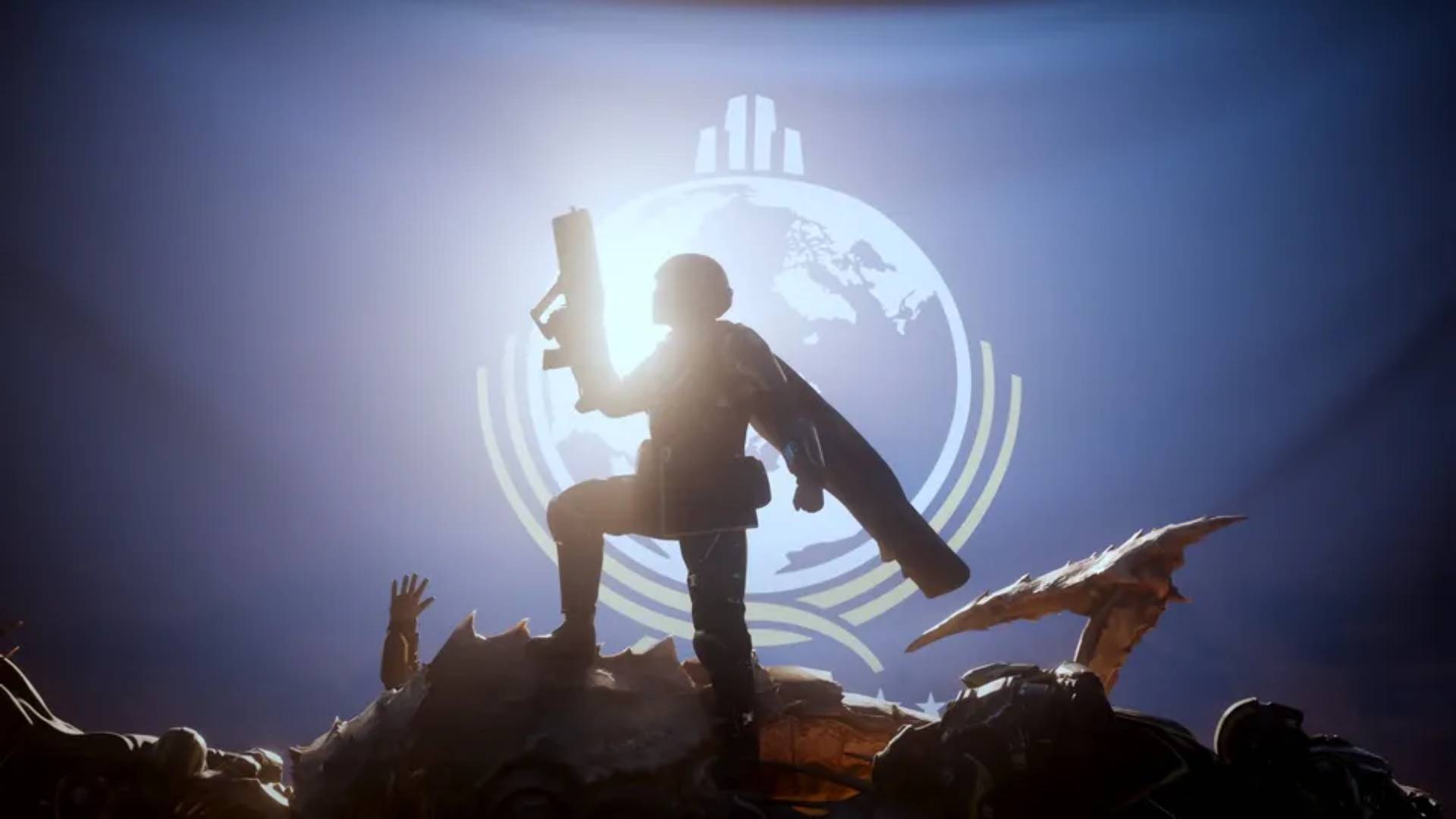
It’s certainly true that not all games have this kind of journey. Relatively few people – myself included – expected Helldivers 2 to be the breakout phenomenon it proved to be. Some of that was luck – Eriksson acknowledges that launching in the relatively quiet period at the beginning of the year was extremely good – but much of it was quality and innovation. Plenty of games falter despite optimal launch windows or thrive during busy periods. For Eriksson, Helldivers owes its success to a couple of other factors. One of those is simple: “nothing can beat having a good game that players love – you need that. Otherwise it doesn’t matter when you release anything.” The other is a little more esoteric: “I think the fantasy is so incredibly strong” he says when I ask him why the ‘Forever War’ narrative is so enduringly popular. “It’s a simple fantasy, and because it’s a simple fantasy, it’s also super, super strong.”
Regardless, it’s clear that even Arrowhead didn’t quite know what it had on its hands. Eriksson explains that about two months before launch, he was helping with the interview process for the company’s new COO. “She said something like ‘what’s your scenario planning for launch? Have you prepared for a major hit?” Eriksson said yes – Arrowhead had planned for the outlandish world where it had to cope with 150,000 concurrent players, but that was “way more” than the devs actually expected to get. Fast-forward a few weeks, and the team found itself dealing with 800,000 concurrents instead. “We had not prepared for that,” Eriksson says. “We really believed in the game a lot, but we were still underestimating just how much players would enjoy the game. We were believers, but we were surprised and shocked by the reception.”
That reception comes with a financial windfall. When you attract more than five times more players than you were hoping for, your bottom line starts to look pretty good. While neither Arrowhead nor Sony is talking openly about the money, Bolle explains that the game’s success “is definitely putting us on a more stable horizon.” In times as uncertain as these – Bolle has previously discussed the “dire” state of the industry – he says that “it feels good to see that we can look ahead a long time and keep the devs happy as well.”
“We were believers, but we were surprised and shocked by the reception”
For the team as a whole, however, the success doesn’t seem to have gone to their heads. While Bolle acknowledges how important it is to be able to think “‘yeah, we’re gonna be able to keep doing what we want’,” he also says that “as a studio, it’s weird, it didn’t change much. We kept the same culture. If I would go back a year, I would still feel the same with the people I’m working with. I like that. We really kept the Arrowhead way.”
Eriksson agrees. “It’s given us financial stability to keep going for many years, which is a really big privilege,” he says. For the most part, the “it doesn’t seem like the attitude with the devs has changed that much.” There was, however, one change: Before launch, some devs would express their desire to go to “one of these big studios with the big games” – the Blizzards, Naughty Dogs, and Rockstars of the world clearly holding sway over some members of Arrowhead. “All of a sudden,” however, Eriksson says that “we were one of those overnight.”
Taking a dip
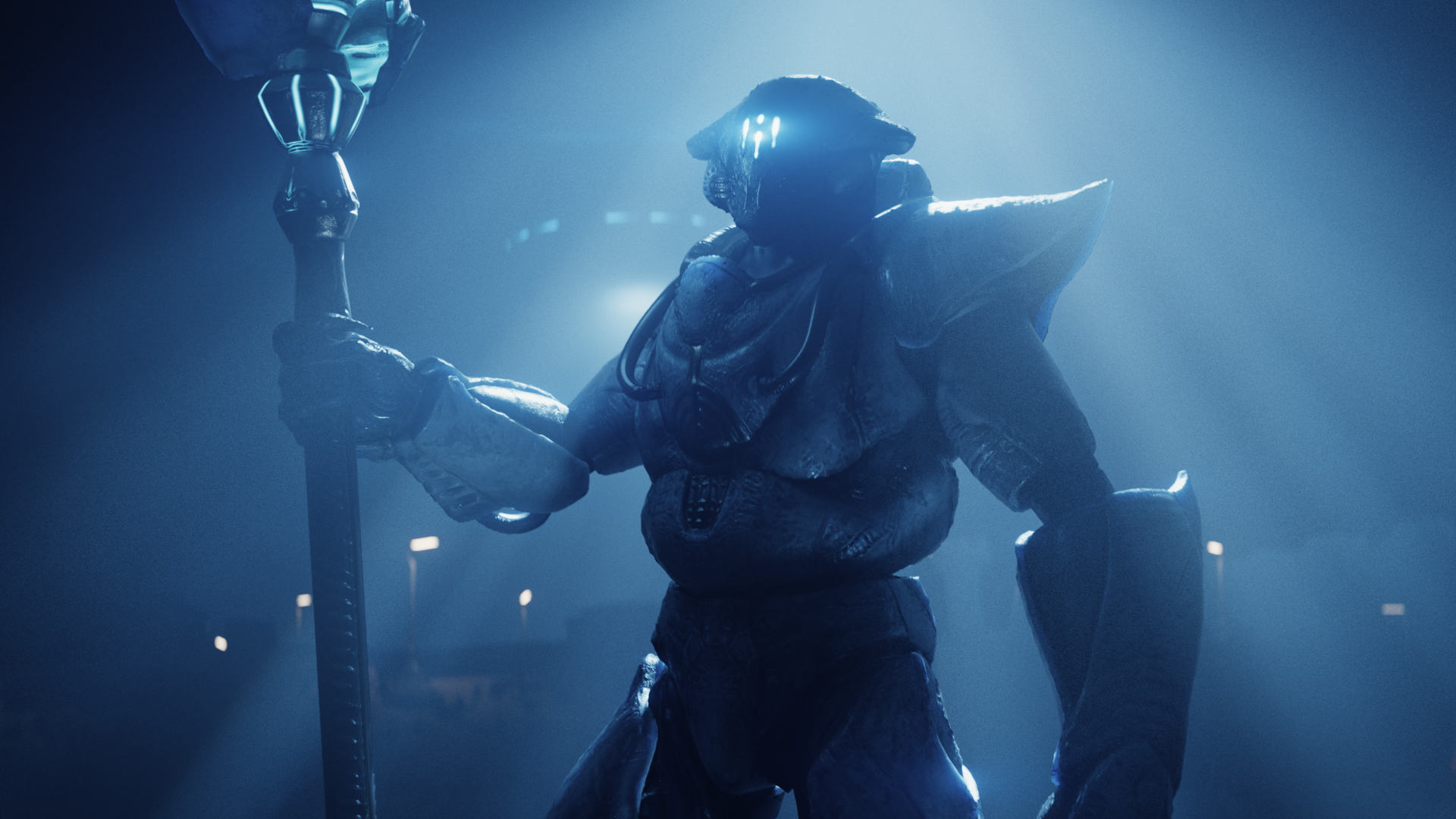
While Helldivers 2’s financial success is clear, its overall reception has been rockier. In the weeks after launch, players found themselves frustrated by Arrowhead’s decision to prioritise balance over fun, hitting popular weapons with potent nerfs. In May, Sony moved the goalposts, demanding PSN accounts be linked to Steam in order to play, a move that effectively revoked access for many players. Those rules were walked back for existing players, but not before the game could rack up 220,000 negative Steam reviews in a single week. The game’s two-month turnaround over the summer has helped, but its overall rating still bears the scars of that review-bombing campaign.
Those scars, however, are something that Eriksson seems almost proud of. “I think life should be interesting,” he says. “I think life should be like living through an interesting book. I don’t want to read through a book where it’s like ‘and then everything was ok’.” Those low moments were “frustrating,” but Helldivers 2’s director says he’s “loved pretty much every second of this ride.” In part, that’s due to the players, who he suggests are exceptionally well-attuned to ideas that would improve the game.”With many other games players can struggle to have ideas about how the game could be developed further,” says Eriksson. “But with Helldivers, people have brilliant ideas.”
“Even with all the ups and down, I’m so happy to be on this ride”
I ask whether Eriksson and Bolle think they’re better aligned on those community sentiments than they used to be. Both hit back with a confident ‘yes’. “We do feel a lot more confident,” Eriksson says. “I don’t think it’s a secret that we were not prepared for this, for the amount of attention and success.” Internally, process[es]— and sometimes staff – were simply missing. Eriksson admits “we did do some mistakes,” but puts the blame on the “chaotic nature” of development that’s almost inevitable “when you have this massive of a hit.”
Those kinks seem to have been ironed out. Bolle says that Arrowhead is definitely doing better from a production standpoint, while Eriksson says the road will “hopefully be less bumpy going forward.” But that doesn’t mean that the studio is done taking big swings. Bolle acknowledged that “you can’t match everyone’s needs” – it’s impossible to create the “magic recipe” that everyone will enjoy. That’s why Omens of Tyranny is aimed at “more hardcore” fans, and it’s why Eriksson says that Arrowhead might mess up again in future. But for all the ways the studio might fail, it’s “gone a long way into controlling the beast” that it’s created, and that paves the way for a lengthy future. “Even with all the ups and downs,” Eriksson concludes, “I’m so happy to be on this ride. And we’re super committed to keeping the ride going for as long as we can.”
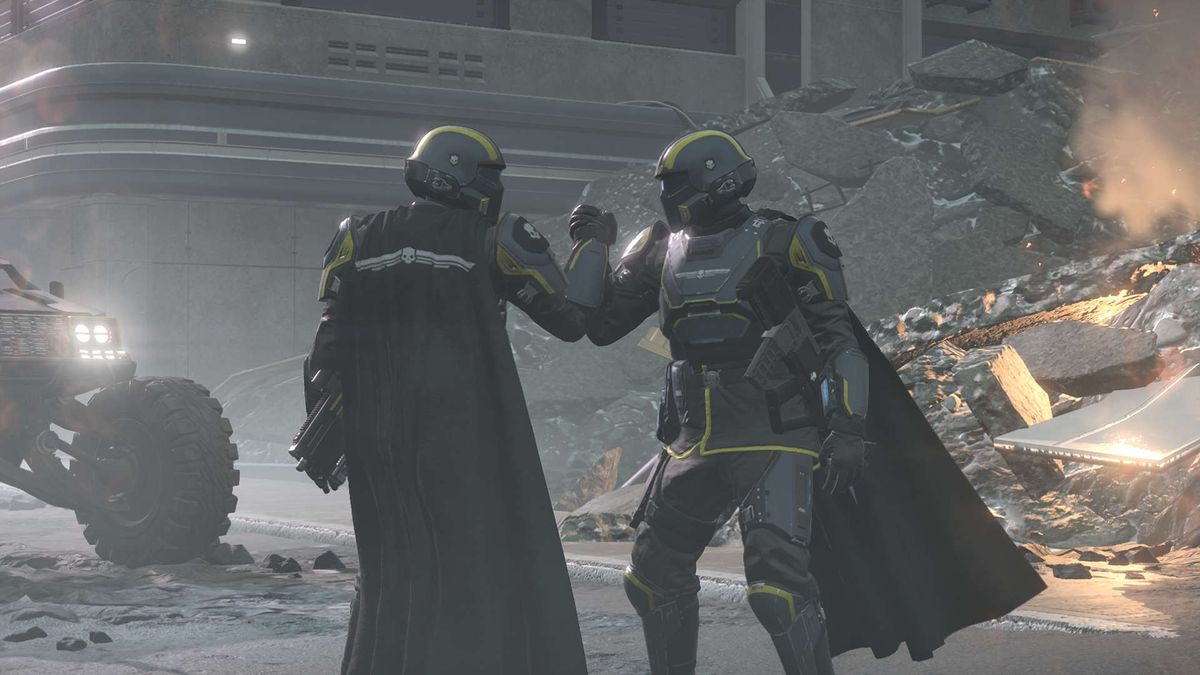

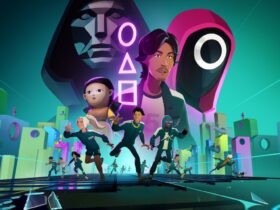
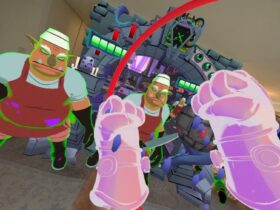
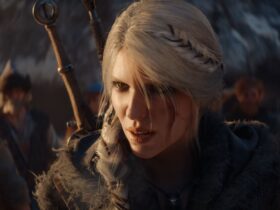






Leave a Reply